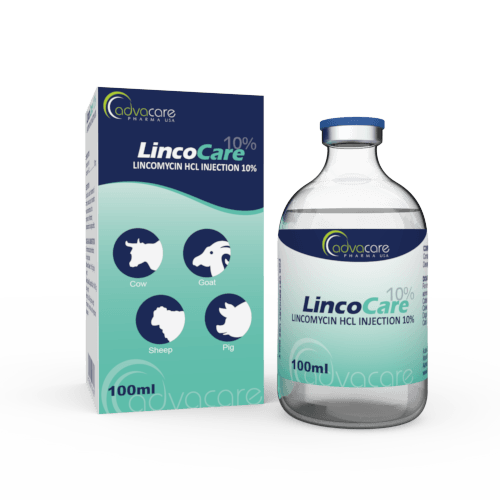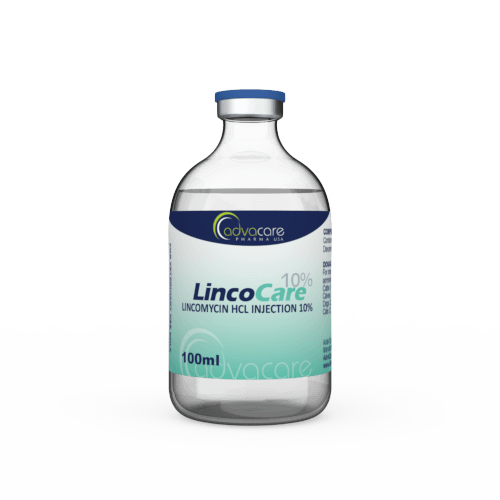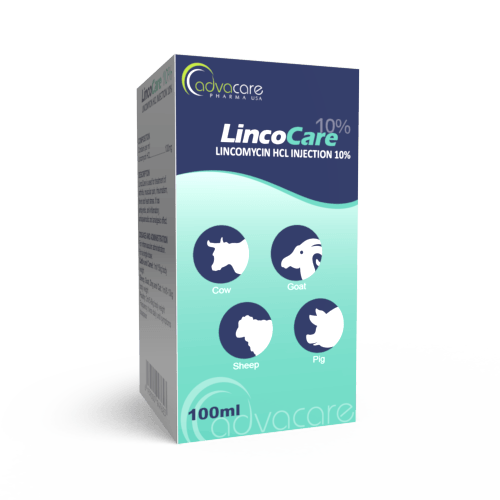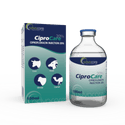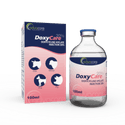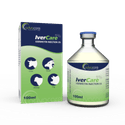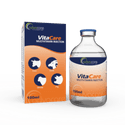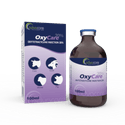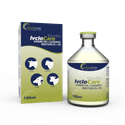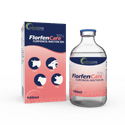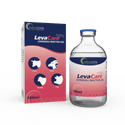- Home›
- Veterinary Pharmaceuticals›
- Veterinary Injections›
- Veterinary Liquid Injections›
- Lincomycin HCl Injection
Lincomycin HCl Injection
Dosage
Packaging
What is Lincomycin HCl?
Active Ingredients: Lincomycin HCl
Lincomycin HCl Injection is a drug used to treat bacterial infections in dogs, cats, cows, goats, sheep and pigs. It's used to treat infectious forms of arthritis, such as arthritides in pigs caused by organisms like Staphylococci, Streptococci, and Erysipelothrix. This drug is also indicated for the treatment of Mycoplasma pneumonia.
Lincomycin is a bacteriostatic narrow-spectrum antibiotic of the lincosamide group. It is effective against anaerobic bacteria and sensitive gram-positive aerobic bacteria, especially Staphylococcus and Streptococcus. Beyond its application in treating infectious forms of arthritis and Mycoplasma pneumonia, this medication is also employed in managing skin infections, respiratory infections, and other bacterial ailments.
The appropriate dosage varies depending on the animal, the severity of the infection, and the veterinarian's guidance. It is typically administered via intramuscular or subcutaneous injection.
It is important to note that Lincomycin HCl Injection is for veterinary purposes only. Animal owners should follow the prescribed dosage and administration instructions precisely and to complete the full course of treatment even if the symptoms improve, to ensure the infection is fully eradicated.
AdvaCare Pharma's Lincomycin HCl Injections are manufactured in GMP-certified facilities located in China, India, and the USA. We routinely inspect our production facilities to ensure our products meet health, safety, and environmental standards.
Why are we a trusted Lincomycin manufacturer?
Lincomycin Injection is manufactured and globally distributed by AdvaCare Pharma, a leading manufacturer of veterinary injections in the pharmaceutical industry. We have been committed to distributing high-quality, GMP-certified veterinary medications for the global market over the past 20 years. As a top Lincomycin manufacturer, we ensure that all of our 100+ veterinary injections surpass our distributors' requirements by conducting routine internal and third-party facility audits.
Uses
What is Lincomycin HCl used for?
It's used to treat bacterial infections, such as arthritides, caused by susceptible organisms like Staphylococci, Streptococci, Erysipelothrix and Mycoplasma. It may also be indicated for the treatment of respiratory infections, skin infections, and other conditions caused by susceptible bacteria.
What animals can be treated with Lincomycin HCl Injection?
This injectable antibiotic is recommended for use on dogs, cats and livestock like cows, pigs, goats, and sheep.
How is a Lincomycin HCl Injection used?
This medication has been manufactured as a liquid, which is packaged in a vial (10ml, 30ml, 50ml, or 100ml vials are available). It is intended to be administered by intramuscular or subcutaneous injection. Lincomycin HCl Injection is intended for veterinary use only.
How does Lincomycin HCl Injection work?
It works by inhibiting bacterial protein synthesis, specifically targeting the ribosomes of susceptible bacteria. When administered, this moderately strong antibiotic interferes with the bacteria's ability to produce essential proteins required for their growth and reproduction. This disruption in protein synthesis hinders the bacteria's ability to multiply and thrive, effectively arresting the infection.
What bacterial infections is Lincomycin HCl most effective against?
Lincomycin HCl is particularly effective against infections caused by Staphylococci, Streptococci, Erysipelothrix, and Mycoplasma. It's commonly used for treating bacterial arthritis, skin infections, and respiratory infections.
Which animals should NOT take Lincomycin HCl Injection?
It should not be administered to rabbits, hamsters, guinea pigs, horses, and ruminants due to their unique physiological and metabolic characteristics. These animals have sensitive digestive systems, and the medication can disrupt their gut flora and might do more harm than good.
Can Lincomycin HCl Injection be used alongside other medications?
It should not be combined with other antibiotics that have similar mechanisms of action, as this may lead to antagonistic effects. Caution is warranted when using Lincomycin HCl alongside neuromuscular blocking agents, non-steroidal anti-inflammatory drugs (NSAIDs), or medications metabolized by the liver or kidneys. Concurrent administration with vaccines should be carefully reconsidered to avoid potential interference with vaccination efficacy.
How long does Lincomycin HCl Injection last?
The duration of action depends on factors such as the animal's metabolism, the severity of the infection, and the specific bacteria being targeted. Lincomycin HCl has a relatively short half-life in the bloodstream, which means it may need to be administered at regular intervals, often once or twice a day, to maintain effective drug levels. Treatment can range from several days to a few weeks.
What is the withdrawal period for Lincomycin HCl?
The withdrawal period is 48 hours for meat. This means that after the last administration of the drug, farmers are required to wait for 48 hours before the animal can be slaughtered to ensure that any residues of the medication have sufficiently cleared from the animal's system.
Can Lincomycin HCl Injection be used for preventive purposes?
This drug is mainly used for the treatment of specific bacterial infections, and it is not typically used as a preventive measure.
Is it possible for an animal to develop resistance to the drug?
Yes, it is possible. When animals are repeatedly exposed to the medication without proper dosage control or duration of treatment, the likelihood of resistance development increases. Responsible antibiotic use practices, including avoiding unnecessary treatments and practicing good hygiene and biosecurity, can help reduce the emergence of resistance.
Is a prescription required for Lincomycin HCl Injection?
Yes, Lincomycin HCl Injection is a prescription drug and should be used only under veterinary guidance.
How should Lincomycin HCl Injection be stored?
This medication should be stored in a dark, dry location under 30°C. The vial should be sealed tightly. Proper storage and monitoring of the expiration date help ensure the medication's effectiveness and safety.
Dosage
How much Lincomycin Injection should be given to livestock?
The usual dose is 6.6-11mg (lincomycin) per kg of body weight, given every 8-12 hours SC/IM. The dose and frequency of medication will also vary based on condition and disease.
How much Lincomycin Injection should be given to cats or dogs?
In pets like dogs or cats, the usual dose of Lincomycin is 7 to 15mg per pound (15 to 33mg/kg) administered every 8 to 12 hours subcutaneously or intramuscularly. The exact dose and frequency is based on the specific condition being treated and the animal's health status.
What should be done in case of an overdose?
If an overdose is suspected, seek veterinary care right away. Symptoms may include severe diarrhea, allergic reactions, or other serious side effects.
What happens if a dose is missed?
If a dose is missed, it should be administered as soon as remembered. If it's almost time for the next schedule, skip the missed dose and continue with the regular schedule. Do not do double dosing.
Refer to a veterinary doctor or pharmacist for guidelines on dosage.
Side Effects
As with all pharmaceuticals, some unwanted effects can occur from the use of Lincomycin HCl Injection.
Some common side effects may include but are not limited to:
- loss of appetite
- lethargy
- localized irritation
- change in stool consistency
Serious side effects, which may be caused by overdose, include:
- allergic reaction (anaphylactic shock)
- diarrhea or vomiting in dogs and cats
- neurological symptoms like seizures or severe behavioral changes
- abscesses or severe swelling in injection site
For common side effects, symptoms may be mild and resolve on their own, but a veterinarian can provide guidance on whether treatment should be adjusted or discontinued. In cases of serious side effects, immediately inform the veterinarian about all observed symptoms and the timeline of their occurrence to ensure prompt and effective treatment.
For a comprehensive list of all possible side effects of this medication, consult a veterinarian.
Precautions
Do NOT use Lincomycin HCl Injection for an animal that:
- has a known allergy or hypersensitivity to any of the ingredients.
- belongs to one of the species: rabbits, hamsters, guinea pigs, horses, ruminants.
Treatment with this drug should be administered with caution if an animal:
- has kidney or liver disease.
- is pregnant or lactating.
Rabbits, hamsters, guinea pigs, horses, and ruminants have unique metabolic processes, making the use of lincomycin HCl unpredictable and potentially harmful. The medication can disrupt their delicate gut flora, leading to gastrointestinal issues.
What are the most common animals Lincomycin HCl Injection is used for?
Lincomycin Hydrochloride (HCl) Injection is used for treating various infections in animals, such as:
- Cats: Lincomycin is effective against certain bacteria in cats, particularly for treating soft tissue infections such as skin and dental infections. It's also useful in combating infections caused by Staphylococcus aureus and Streptococcus spp.
- Cows: This antibiotic is often used to treat foot rot and metritis in cows, a uterine infection following calving. It can also be effective against Mycoplasma species.
- Dogs: Lincomycin is used in dogs for treating bacterial infections, especially those affecting skin and dental health, as well as deeper infections like osteomyelitis.
- Goats: In goats, Lincomycin is used to combat infections like foot rot and bacterial pneumonia, often caused by susceptible strains of Streptococcus and Staphylococcus. It's also used in cases of necrotic enteritis.
- Sheep: Used for treating bacterial infections such as foot rot, Lincomycin is effective in sheep against a range of pathogens, including Fusobacterium necrophorum and Bacteroides melaninogenicus. It's also used to treat pneumonia and other respiratory infections.
- Pigs: Commonly used in pigs to treat swine dysentery and certain forms of pneumonia, Lincomycin targets pathogens like Brachyspira hyodysenteriae and Mycoplasma. It's also used in the treatment of proliferative enteropathy.

You might be interested in...
Why AdvaCare Pharma?
As an industry leader, we are aware of our responsibility to provide affordable and sustainable solutions to improve healthcare worldwide.
